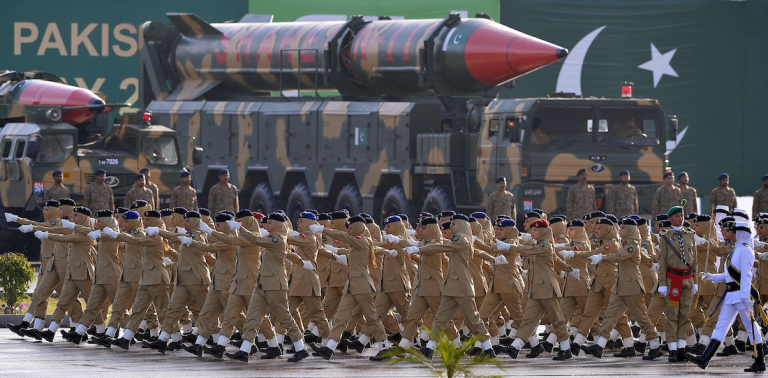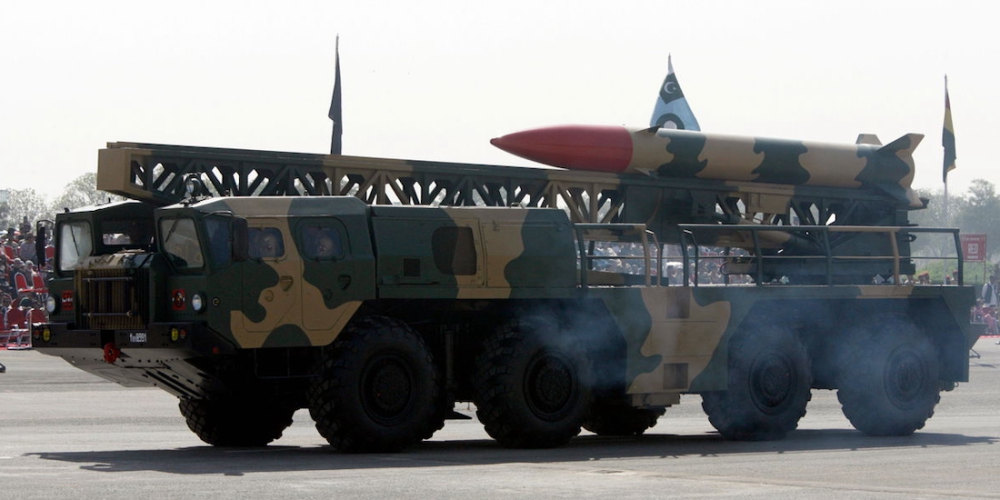
New York, N.Y. – Pakistan successfully conducted a training launch of its Abdali ballistic missile on May 3, 2025, as part of a military exercise named Exercise INDUS, the country’s military announced.
The short-range, surface-to-surface missile, with a reported range of 450 kilometers, was tested to validate operational readiness and technical capabilities amid heightened tensions with India following a recent terrorist attack in Kashmir. The launch has drawn international attention, with India describing it as a provocative act, while Pakistan maintains it was a routine exercise to ensure deterrence.

Pakistan Tests Abdali Missile Successfully
Pakistan’s Inter-Services Public Relations (ISPR), the military’s media wing, stated that the Abdali missile launch was aimed at ensuring the “operational readiness of troops and validating key technical parameters.”

These include the missile’s advanced navigation system and enhanced maneuverability features.
The Abdali, also known as Hatf-II, is a solid-propellant, road-mobile missile developed by Pakistan’s Space and Upper Atmosphere Research Commission (SUPARCO).
It has been in service since 2005 and is designed for precision strikes, capable of carrying conventional warheads or high-explosive payloads weighing between 250 and 450 kilograms.
The test was observed by senior military officials, including the Commander Army Strategic Forces Command, as well as scientists and engineers from Pakistan’s strategic organizations.
President Asif Ali Zardari and Prime Minister Shehbaz Sharif congratulated the personnel involved, expressing confidence in Pakistan’s strategic deterrence capabilities.
The ISPR emphasized that the Abdali missile is a key component of Pakistan’s conventional and strategic arsenal, designed for rapid deployment and high accuracy against ground targets.
Regional Tensions Escalate

The missile test comes against the backdrop of escalating tensions between Pakistan and India, sparked by a deadly terrorist attack on April 22, 2025, in Pahalgam, Indian-administered Kashmir.
The attack, which killed 26 people, mostly tourists, has been attributed by India to the Kashmir Resistance, a group New Delhi alleges is backed by Pakistan’s military. Pakistan has denied these accusations, condemning terrorism and appealing to Gulf allies to help de-escalate the situation.
India responded to the Abdali test by labeling it a “reckless act of provocation” and a “dangerous escalation.”
Indian intelligence sources noted that Pakistan had issued multiple Notices to Airmen (NOTAMs) signaling potential missile tests since late April, with some viewing these as strategic signaling or psychological warfare.
Despite the rhetoric, Pakistan provided advance notification of the test to India, in line with a 2005 bilateral agreement requiring both nations to inform each other of ballistic missile tests.
Technical and Strategic Significance
The Abdali missile, named after Ahmad Shah Abdali, an 18th-century Muslim conqueror, holds symbolic and strategic importance for Pakistan. Analysts suggest the missile’s 450-kilometer range—reportedly double that of earlier versions—enhances Pakistan’s ability to target key military installations in India’s northern and western regions. Its road-mobile design allows for rapid deployment, making it difficult to detect and counter. The missile’s advanced navigation system and maneuverability features improve its accuracy, contributing to Pakistan’s credible minimum deterrence posture.
Security analyst Syed Muhammad Ali, based in Islamabad, noted that the test underscores Pakistan’s commitment to maintaining a robust defense capability amid regional challenges. However, some experts argue that the timing of the launch, following the Pahalgam attack, risks further straining bilateral relations. Both India and Pakistan possess significant nuclear arsenals, with Pakistan estimated to have around 170 warheads and India approximately 172, according to the Arms Control Association.
International Reactions and Implications
The Abdali test has raised concerns among international observers, given the volatile India-Pakistan relationship. The United Nations has not issued an official statement, but Pakistan is reportedly preparing to brief the U.N. Security Council on recent regional developments. Meanwhile, India has suspended postal exchanges with Pakistan and imposed a ban on direct and indirect imports from its neighbor, signaling a further deterioration in ties.
Analysts suggest that the test may be part of Pakistan’s broader strategy to deflect international scrutiny following the Pahalgam attack while demonstrating military readiness. However, the launch was conducted away from the India-Pakistan border, with missiles typically fired into the Arabian Sea or Balochistan’s deserts, reducing the immediate risk of escalation.
Path Forward
The Abdali missile test highlights the delicate balance of deterrence and diplomacy in South Asia. Both Pakistan and India have reiterated their commitment to avoiding full-scale conflict, but the cycle of accusations and military posturing complicates de-escalation efforts. Regional stability will depend on diplomatic engagement, possibly facilitated by neutral parties such as the U.N. or Gulf states, to address underlying issues like Kashmir.